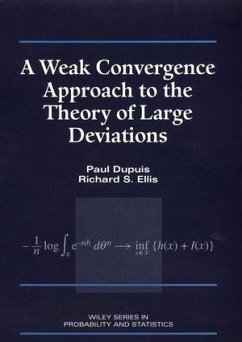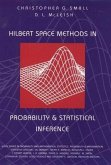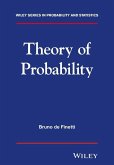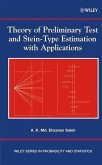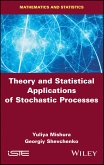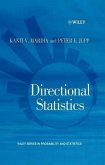Applies the well-developed tools of the theory of weak convergenceof probability measures to large deviation analysis--a consistentnew approach The theory of large deviations, one of the most dynamic topics inprobability today, studies rare events in stochastic systems. Thenonlinear nature of the theory contributes both to its richness anddifficulty. This innovative text demonstrates how to employ thewell-established linear techniques of weak convergence theory toprove large deviation results. Beginning with a step-by-stepdevelopment of the approach, the book skillfully guides readersthrough models of increasing complexity covering a wide variety ofrandom variable-level and process-level problems. Representationformulas for large deviation-type expectations are a key tool andare developed systematically for discrete-time problems. Accessible to anyone who has a knowledge of measure theory andmeasure-theoretic probability, A Weak Convergence Approach to theTheory of Large Deviations is important reading for both studentsand researchers.
Dieser Download kann aus rechtlichen Gründen nur mit Rechnungsadresse in A, B, BG, CY, CZ, D, DK, EW, E, FIN, F, GR, HR, H, IRL, I, LT, L, LR, M, NL, PL, P, R, S, SLO, SK ausgeliefert werden.
Hinweis: Dieser Artikel kann nur an eine deutsche Lieferadresse ausgeliefert werden.

